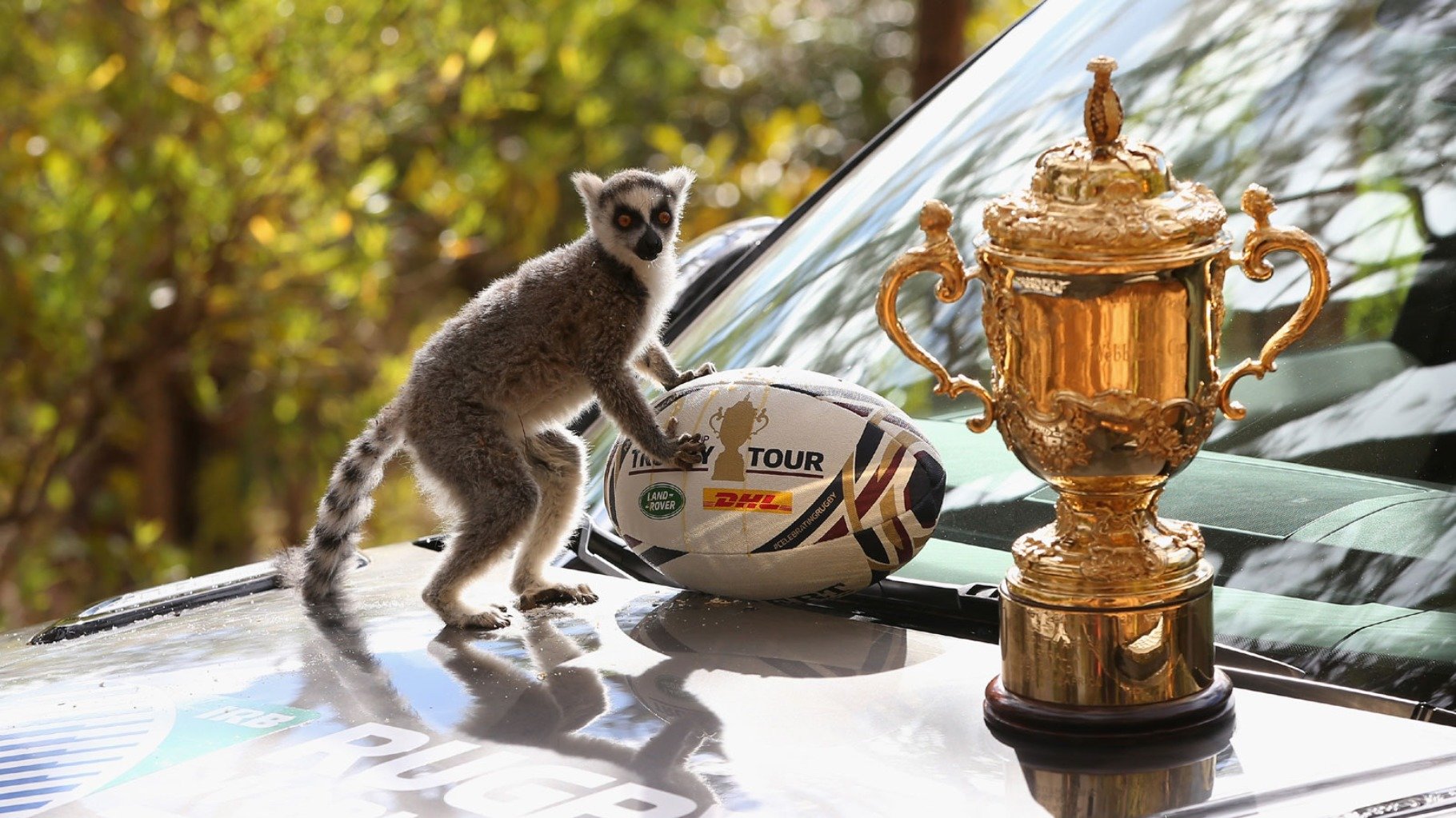With 22,000 players and crowds of over 10,000 people - is this island nation rugby's best kept secret?

There are six countries in the world where rugby is the national game. Most are international power houses, New Zealand, Fiji, Samoa, Tonga and Wales. The other is known more for animated lemurs than passionate rugby fans.
Madagascar existed as a French colony until nineteen sixty. The booming railroad construction brought with it thousands of European workers, who in turn brought the game to the island. While Madagascar is now an independent state, one indelible mark lingers. Rugby.
Traditionally it’s the South, not the East that’s the home of African rugby. South Africa have more than half a million registered rugby players, while Madagascar only has twenty-two thousand. That being said, New Zealand only has twenty-eight thousand, and nobody doubts them.
Now that's what a crowd watching rugby in Madagascar looks like .#BarthesU20 https://t.co/XLEBTarVFD
— AishaNakato (@AishaNakato8) April 22, 2017
Where other nations may have more, the Madagascans make up for it in passion and commitment. Often young players learn to play street rugby on concrete or sand before growing into the game.
Everywhere you go in Antananarivo you’ll see the oval ball. There’s a staggering one hundred and sixty-four clubs in the country’s capital.
At the heart of all of this is the Mahamasina Municipal Stadium, the stage for all major Madagascan games as well as one of the greatest matches that most of the world never saw.
In July 2012, Madagascar hosted the annual round of the African World Cup Qualification Tournament. The national team were taking part in group 1B, where they hoped to win promotion to division 1A and play the following year to win qualification for England 2015.
Having beaten Morocco and booked a place in the final Madagascar faced up against Namibia, known for their South African ex-pats and domination of the region, having appeared at the four previous World Cups.
After performing a tribal dance not dissimilar to the All Black’s Haka in front of a crowd over forty-two thousand strong, Madagascar stormed to a 19-0 lead that sent their supporters into raptures.
Spurred on by the fanatical support from the stands the game continued to explode into a feast of running rugby that saw the home side head into half time with a 29-14 lead.
However, the stands were slowly silenced in the second half as the experience of Namibia’s players, many of whom were full-time professionals, began to shine through. Madagascar looked to be all but finished, heading into the final ten minutes an ominous fourteen points down.
The Malagasy were not to be outdone, and produced a moment of magic as they offloaded across the backline to run a try in under the posts. Then followed it up with another converted effort in the seventy-eighth minute. Sending the game into a dramatic extra time.
Roared on by the crowd the additional minutes unfolded in a flurry of running rugby. Namibia attempted to grab control and stretched out an eight point lead before having it cut to the smallest margin by conceding another try to the spirited home side.
Namibia then successfully slotted a further penalty and looked assured of victory, but this epic encounter had one more twist in the tale.
A messy ruck led to a play which somehow managed to contain a thirty-metre run, 5 offloads, a between the legs no look pass, and a try for the Madagascans.
The final scoreline read 57-54, and promotion for the Malagasy into the top flight of African rugby.
While the team couldn’t follow up their monumental victory with qualification for the World Cup, they remain amongst rugby’s elite in every other aspect.
Rugby on the island exemplifies everything the game stands for. It includes everyone regardless of background and is played with the utmost of respect and support by people in the probably the most dedicated rugby region worldwide.
Club matches attract crowds of up to ten thousand on a weekly basis and are broadcast on national television. However, rugby in Madagascar is unsullied by the corporate professionalism of the world’s major leagues. All of the players are amateurs and play for nothing but the love of the game.
They’re world class in every aspect of the game off the field. We are yet to see them transfer this onto the pitch and qualify for rugby’s biggest competition, but if one day they do, the world will know.

































































